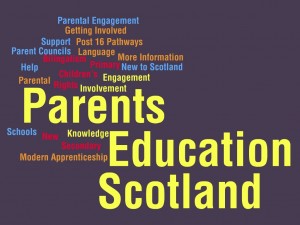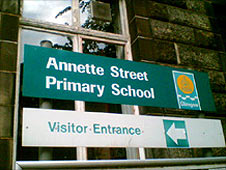

We asked 164 parents from ethnic minorities about the Scottish Education system and their children’s school – 73% did not know what the Curriculum for Excellence was.
Gathered Together are putting together a series of workshops to help parents understand and be more involved in their children’s education and what happens in schools.
We will work with the experts in each field to help those parents who are new to Scotland or those who have grown up in a different education system to help explain different stages and aspects of education.
Our partners will include:
Each of the six workshops will be run in both Edinburgh and Glasgow from 10.30-12.30pm. (For details about individual sessions go to our events page)
Places are limited so please book your place as soon as possible by filling out the registration form at the link below:
https://www.surveymonkey.com/s/JC5PRV9
| Workshop | Glasgow Adelphi Centre |
Edinburgh Quaker Meeting House |
|---|---|---|
| Primary School Information | 30 September | 1 October |
| Secondary School Information | 7 October | 8 October |
| Post 16 Education and Choices | 21 October | 22 October |
| Parental involvement and engagement | 28 October | 29 October |
| Mother tongue- at home and school | 4 November | 5 November |
| Children’s Rights in Scotland | 11 November | 12 November |
Lorna Anderson, an English as an Additional Language teacher based in Glasgow, has taken time out from her dissertation writing and written a blog for us about her work with the families of the children she supports.
I have recently completed the Post Graduate Certificate in Supporting Bilingual Learners in the Mainstream Classroom. We had to carry out a project that addressed concerns we had around supporting EAL learners. Where I worked at the time, parents with limited English language rarely engaged with the school. I talked to these parents at parents’ night and found that they lacked confidence and didn’t believe they could be involved in their child’s learning due to the language barrier. Supporting their children with homework was the biggest issue, as it was generally the traditional tasks such as spelling and writing sentences. Parents prioritised their child’s ability to use English and placed little value on their own first language. I decided to run a series of workshops, with help from interpreters, for these parents on supporting their children with homework. I focused very much on the positives, what parents could do to help.
Firstly, we looked at the reading books that went home and the types of literacy skills they could develop with them using the visuals – regardless of what language the words were written in; skills such as making predictions, recounting the story, speculating and sequencing. I emphasised that developing the ability to make reasoned predictions, for example, is the same skill no matter what language it is in, and that research had proven that you can transfer concepts to a second language effectively if they are embedded in the first. We practiced asking good questions, and the children had the opportunity to come and work with their parent(s) on the aspect we had been looking at that day.
Secondly, it was important to emphasise the value of maintaining first language at home. I made up a series of story packs, which contained a dual language story with supporting games and props. Parents could use these in the same way as the homework reading books to develop literacy skills, plus use the dual language text to share stories and talk about them together at home. These were loaned out weekly and swapped for a new one the following. They were a great success, and very popular with both parents and children!
The parents all said they felt much more confident at the end of the project and were very grateful for the support. Some of them came into school later that year to read stories in their own languages to different classes – something they said they wouldn’t have even considered before. That was the best outcome I could have hoped for!
 Today we were invited to the world premier of “Our children’s future- learning in Glasgow” at Annette Street School in Govanhill. The schools and nursery in Govanhill (Annette Street, St Brides, Cuthbertson, Holy Cross and Govanhill nursery) had been working together to make a short film for new parents, explaining, in their own words the important information about schools in Scotland. It was generously funded by Eurocities and the Scottish Traveller Education Programme, particularly to help the Roma population in the area. Govanhill has always been a diverse area with families from Ireland, Pakistan, Poland, Slovakia and Romania making their homes here. Parents who are new to Scotland are often unaware of the differences between here and their home country- the right to get a place in nursery for 3-4 year olds, the fact that primary school education starts when children are 5 and what children should bring for gym class.
Today we were invited to the world premier of “Our children’s future- learning in Glasgow” at Annette Street School in Govanhill. The schools and nursery in Govanhill (Annette Street, St Brides, Cuthbertson, Holy Cross and Govanhill nursery) had been working together to make a short film for new parents, explaining, in their own words the important information about schools in Scotland. It was generously funded by Eurocities and the Scottish Traveller Education Programme, particularly to help the Roma population in the area. Govanhill has always been a diverse area with families from Ireland, Pakistan, Poland, Slovakia and Romania making their homes here. Parents who are new to Scotland are often unaware of the differences between here and their home country- the right to get a place in nursery for 3-4 year olds, the fact that primary school education starts when children are 5 and what children should bring for gym class.
All this information, and more, was covered in the film- but more importantly it was given by parents who have already gone through the system and were talking in their mother tongue. Hearing from another mother in your language what happens in school is far more reassuring and easy to understand- hearing it from the “horse’s mouth”. The film also had children from the schools talking about what happens in school- from showing off the “bug hotel” in the school play ground to demonstrating what to wear for gym class.
It was a real pleasure to attend, all the film stars looked so pleased and a real effort was made to make the event special- red carpet, bouquets of flowers for the mothers who appeared in the film and huge slices of cake served after the premier. Events like this help families feel a part of the school, giving a sense of belonging and the film has a far more lasting legacy- helping new families understand their children’ school.
You can see the film on the STEP website here
This is a guest blog from Robert McGill (Teacher of English as an Additional Language South Ayrshire Council) sharing the work South Ayrshire has done to engage with parents who are new to Scotland.
On Friday 28th November, 2014 we had one of the best experiences of our teaching careers when we held the first English as an Additional Language (EAL) Parent Forum in South Ayrshire. Approximately 55 parents made the extra effort to come to the John Pollock Centre in Ayr to tell us about their and their children’s experiences in our schools. It was an excellent forum to get to know each other a little bit better.
Everyone was excited about this event particularly when we saw the invitation letter acceptances coming back in such big numbers. 12 languages were represented on the day: Spanish, Tagalog, Punjabi, Visayan, Swahili, Yoruba, Greek, Turkish, Russian, Nepali, Polish and English. We had sent the invitations out to parents in the home languages as well as in English and the parents made special mention of this telling us that they really appreciated our efforts to use their home languages. Of the 12 languages represented there was a request for four interpreters: Punjabi, Spanish, Nepali and Polish which we were able to provide. These interpreters played such an important role in helping everyone to communicate and share with each other.
As this was our first ever parent forum we were to have we looked at what the issues and concerns of parents are from carrying out a search of the internet. We found the ‘Bilingual Matters’ website to be a wealth of information as they have worked extensively with bilingual parents and have kindly shared their findings and experiences. We also found the British Council EAL Nexus website very useful and we adapted information gained from these websites to provide information to help parents understand the Scottish education system and supporting bilingualism.
As we delivered our talk, which highlighted the importance of developing the home language at home and that parents didn’t need to speak English at home, you could see relief appearing on the parents’ faces. More important than focusing on English is the quality of communication within the family. We talked about the challenges of families with bilingual siblings with sometimes the older sibling wanting to speak English and how this affected the younger brothers’ and sisters’ use and development of the home language. Our core message was that bilingualism was positive and advantageous for all young people.
The core message from the parents was that having specialist language teachers helped their children to learn English and to settle into school life. The parents also told us that they liked and valued the bilingual books which we send home to help parents and children develop the home language and which we have in schools as a way to value and an opportunity to use home languages. The parents told us that interpretation in the schools is fundamental to help them communicate with class teachers and schools. Bilingual parents would like more EAL support available in schools, they would like more support for developing English at home and they wanted easier access to the EAL teacher.
We now have EAL information leaflets translated into some of our home languages which have the contact details for each EAL teacher. We were able to receive funding from South Ayrshire to have key school documents translated into Polish. We have created management advice for translated documents. We have increased our bilingual books library. We are going to continue to have an annual EAL Parents Forum. It was a great day which the parents and EAL staff enjoyed and in which we both learned so much.
Here are some of the information leaflets created for EAL parents
There is something really satisfying about collecting stamps and getting something free in the end- reward cards keep me coming back to the same coffee shop. But how do they fit in with parental involvement?
At a recent meeting we heard about Govanhill Nursery, in the Southside of Glasgow, who have introduced their own rewards card. Parents will get a “stamp” on their card for each school event they attend, and if they have six stamps their child can go on the school trip for free. It was born out of the difficulties the nursery had to get parents to come along to school events and give them important information about their children’s learning, applying for a place in school etc. Govanhill nursery is in a diverse neighbourhood with many parents new to Scotland and unfamiliar with the education system- getting the right information to them is incredibly important but parents can be reluctant to come to school events due to lack of confidence, language barriers and other commitments.
The nursery used the rewards cards as a “hook”- a practical reward for parents making the time to come to school events. But the parents also found the events really positive as well- giving them the chance to see what their children are doing in nursery, how they can help and all the essential information about starting school in Scotland.
All they needed was a bit of card and a chance to collect the stamps.